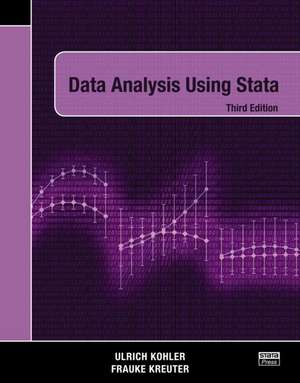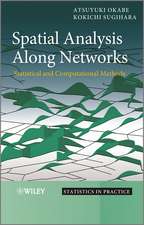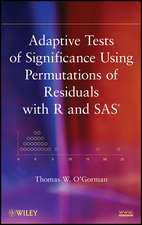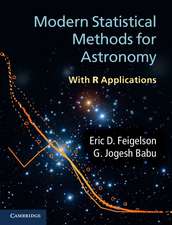Data Analysis Using Stata, Third Edition
Autor Ulrich Kohler, Frauke Kreuteren Limba Engleză Paperback – 20 aug 2012
The book is written as a self-study tutorial and organized around examples. It interactively introduces statistical techniques such as data exploration, description, and regression techniques for continuous and binary dependent variables. Step by step, readers move through the entire process of data analysis and in doing so learn the principles of Stata, data manipulation, graphical representation, and programs to automate repetitive tasks. This third edition includes advanced topics, such as factor-variables notation, average marginal effects, standard errors in complex survey, and multiple imputation in a way, that beginners of both data analysis and Stata can understand.
Using data from a longitudinal study of private households, the authors provide examples from the social sciences that are relatable to researchers from all disciplines. The examples emphasize good statistical practice and reproducible research. Readers are encouraged to download the companion package of datasets to replicate the examples as they work through the book. Each chapter ends with exercises to consolidate acquired skills.
Preț: 521.04 lei
Preț vechi: 566.35 lei
-8% Nou
Puncte Express: 782
Preț estimativ în valută:
99.73€ • 108.37$ • 83.83£
99.73€ • 108.37$ • 83.83£
Carte disponibilă
Livrare economică 31 martie-14 aprilie
Livrare express 15-21 martie pentru 51.71 lei
Preluare comenzi: 021 569.72.76
Specificații
ISBN-13: 9781597181105
ISBN-10: 1597181102
Pagini: 497
Ilustrații: 22 black & white illustrations
Dimensiuni: 152 x 229 x 33 mm
Greutate: 1.04 kg
Ediția:Revizuită
Editura: Stata Press
Colecția Stata Press
ISBN-10: 1597181102
Pagini: 497
Ilustrații: 22 black & white illustrations
Dimensiuni: 152 x 229 x 33 mm
Greutate: 1.04 kg
Ediția:Revizuită
Editura: Stata Press
Colecția Stata Press
Public țintă
Academic, Postgraduate, Professional, and Professional Practice & DevelopmentCuprins
The First Time. Working with Do-Files. The Grammar of Stata. General Comments on the Statistical Commands. Creating and Changing Variables. Creating and Changing Graphs. Describing and Comparing Distributions. Statistical Inference. Introduction to Linear Regression. Regression Models for Categorical Dependent Variables. Reading and Writing Data. Do-Files for Advanced Users and User-Written Programs. Around Stata. References. Indices.
Notă biografică
Ulrich Kohler is a sociologist at the Social Science Research Center Berlin (WZB). Dr. Kohler is an organizer of the German Stata Users Group meetings. Frauke Kreuter is an associate professor in the Joint Program in Survey Methodology (JPSM) at the University of Maryland–College Park, professor in the Statistics Department at the Ludwig-Maximilians-University of Munich, and head of the Statistical Methods group at the Institute for Employment Research (IAB) in Nuremberg, Germany. Both authors are associate editors of the Stata Journal. They coauthored a German textbook, Datenanalyse mit Stata, which was the predecessor of this book. They used Data Analysis Using Stata to teach several classes and short courses at the University of Mannheim, the University of Konstanz, the Free University of Berlin, and the University of California–Los Angeles.
Descriere
A comprehensive introduction to both statistical methods and Stata, this text helps beginners learn the logic of data analysis and interpretation and easily become self-sufficient data analysts. It also offers tips and tricks for readers already familiar with Stata. Step by step, the book leads readers through the entire process of data analysis, covering the principles of Stata, data manipulation, graphical representation, and programs to automate repetitive tasks. This third edition also explores advanced topics such as standard errors in complex survey and multiple imputation.








